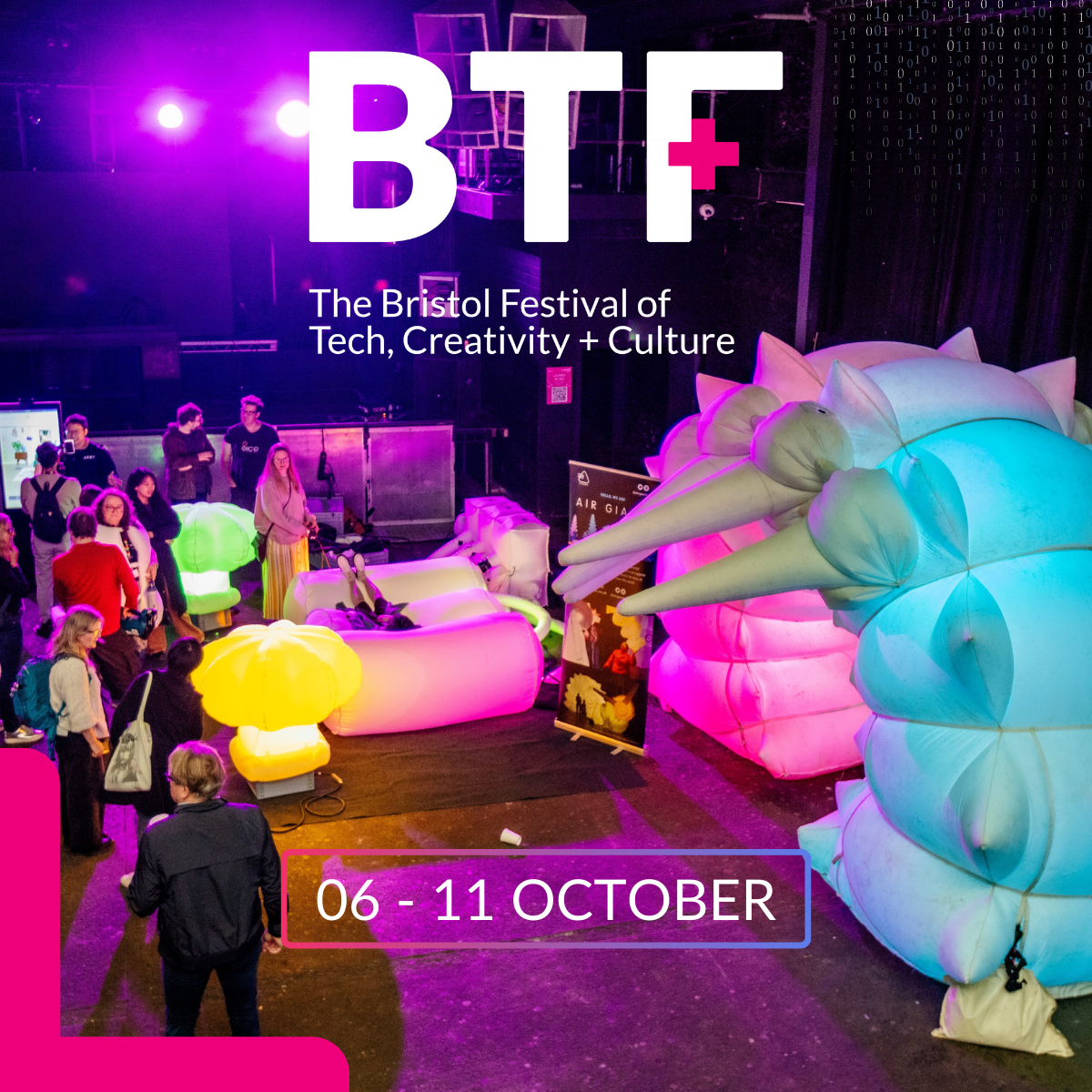Bristol Festival of Tech, Creativity and Culture 2025
Bristol Festival of Tech, Creativity and Culture (BTF+) brings together a range of tech innovators, creators, artists and more. Spanning the course of a week at a range of iconic Bristol venues, the festival hosts conversations and panels from industry experts and artists exploring the intersection between creativity and technology.
This year, Lux Aeterna featured in two talks hosted at Temple Studios, these were ‘Reno: Exploring new realms in visual effects through sci-fi filmmaking’ with Director Rob Hifle and Creative Technologist James Pollock and ‘Turning Points: Riding the generative AI wave and lessons learned in responsible creativity’ with James and Dr Cobus Jooste.
Rob opened the first talk explaining how Lux Aeterna became involved with creative technology research programme MyWorld and how this led to the creation of our experimental sci-fi short RENO (working title) with MyWorld’s support. RENO, in addition to being a sci-fi film, is a research project into the use of AI in creative projects. AI was used in the research and planning phases of RENO so that the limits of generative AI could be explored and investigated in a real world application.
“I don’t think we would have been able to do this project without machine learning speeding up some of those more laborious tasks”
Earlier this year, RENO was filmed at The Sheds, MyWorld’s brand new virtual production studio. Rob and James explained how every shot in the film was meticulously previsualised in Unreal Engine, using digital versions of the set and the Sony Venice 2 camera the film was shot on. This in-depth planning made sure that shots were executed as smoothly as possible on filming days. The talk ended with an exclusive clip of the film being shown to the eager audience before a brief Q&A.
In the second talk, Turning Points, James was joined by intellectual property expert and law professor Dr Cobus Jooste. James and Cobus talked through the legal and ethical challenges that can arise when using generative AI. With regards to RENO this is based on three main points; the creativity trap, whereby the AI output can steer the project down a different path and leaving little room for human creativity. The intellectual property wall, where ensuring AI models have not been trained on copyrighted works can prove very difficult. And finally, the client risk, which covers the profound risks that those who commission works can face when AI is brought into those works, such as unclear ownership of AI created work and reluctance to fund AI projects due to the legal challenges that might arise.
James explained that RENO was used as a project to explore these challenges and how due to a current lack of regulation they set their own high ethical standards throughout the project as “we didn’t want to be constantly defending our output.”
There were many questions from the audience following the talk which James and Cobus were happy to answer to the best of their abilities. However, as Cobus explained, the AI landscape is changing on a nearly daily basis so predicting how legislation and industry standards will change is incredibly difficult. Both the talks raised important questions and piqued a lot of interest for the release of RENO.






